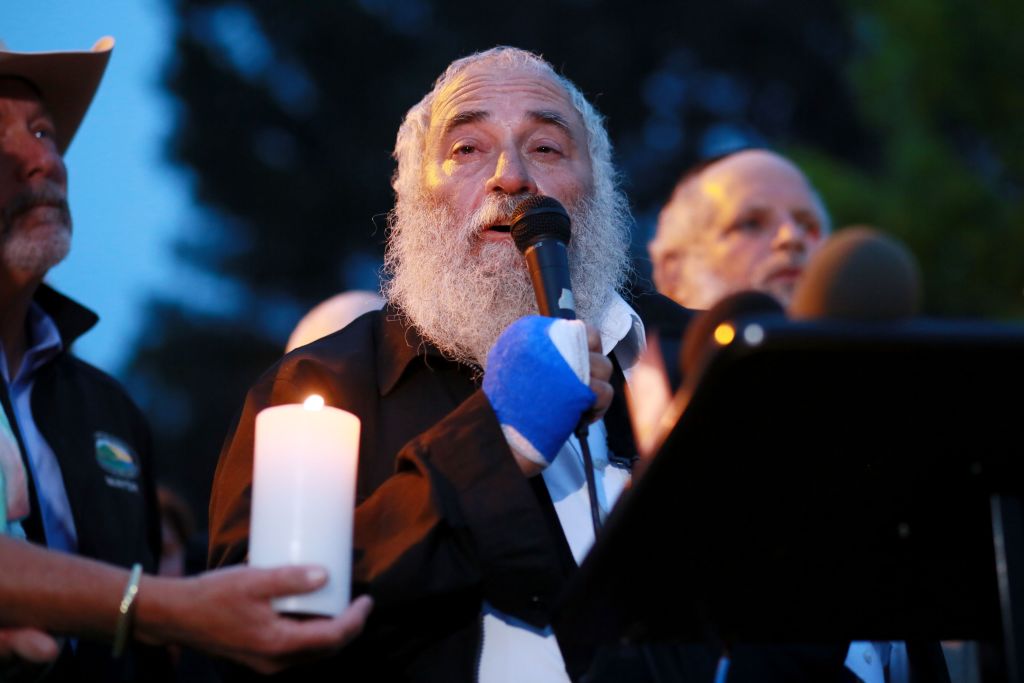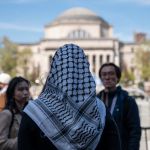With the mosque shooting in New Zealand, the bombings of churches in Sri Lanka and the attack on a synagogue in Poway, California, each of the major monotheistic religions have had places of worship attacked by terrorists almost within a month.
Houses of worship are a common target for racial and religious supremacists. In the United States, there have been, within the last decade, neo-Nazi shootings at a gurdwara in Oak Creek, Wisconsin, a black church in Charleston, South Carolina and the Tree of Life synagogue in Pittsburgh, Pennsylvania. These events have kept alive a grim tradition, going back to the 16th Street Baptist Church bombing of 1963, where Ku Klux Klansmen attacked a church with dynamite and killed four little girls.
Across the Middle East, and throughout much of Africa and Asia, jihadists have targeted Christian churches, Ahmaddiya mosques and Shia shrines. These events have been far too numerous to list, tending to be clustered around religious holidays and rituals, but larger recent attacks have included the 2015 Karachi bus shooting that killed 45 Shia Muslims, the 2017 Palm Sunday church bombings in Egypt that killed 45 Christians and the 2019 attack on a cathedral in the Philippines that killed 20 people. Jihadis have also attacked Christians and Jews in Europe. In France, in 2016, jihadis ran into a Normandy church and cut the throat of Fr Jacques Hamel.
There is, of course, a simple strategic motivation behind attacks on places of worship: targets in large numbers, with their guards down. At a house of worship, indeed, your perceived enemies might be not just defenseless but welcoming. ‘Hello, brother. Welcome,’ one Muslim man said to the Christchurch mosque shooter moments before becoming his first victim. Before Dylann Roof opened fire in Charleston he had been sitting quietly as the parishioners of the Emanuel African Methodist Episcopal Church enjoyed their Bible study group.
Mosques and synagogues in the United States have responded to terroristic events of the recent past by increasing security measures at services, while churches in Sri Lanka have been canceling theirs. Some, like John Battersby, who lectures at New Zealand’s Massey University, have advised against an overreaction. To be sure, safety precautions are advisable, not least in conflict zones or nations where religious bigotry is especially prevalent, but most houses of worship face little or no threat and one should resist the temptation to piece world events together and claim they represent a ubiquitous phenomenon.
Still, the fact that we should not exaggerate the scale of a phenomenon does not mean that there is no phenomenon. Another reason to be careful to not let terrorists unduly affect our way of life is that this is often a consequence of what they hope to achieve. This can be a somewhat disingenuous thing to say, with different ideologues insisting that it is their desired policies that keep terrorists awake at night and their opponents’ ideas that make them jump for joy. ‘You want to [insert thing I don’t like]? That’s what the terrorists want! You don’t want to [insert thing I like]? What, don’t you want to beat the terrorists?’
Yet I think there is another motivation aside from strategic convenience that leads killers to target houses of worship. A house of worship is a sanctuary, where the power of God, we hope, is at its most powerful. Whatever the travails of the lives of believers, they look for comfort and safety in a ‘serious house’ in the presence of the Lord. Attacking believers at a time like this is attacking them at their most secure; asserting power over their existence and disdain for their beliefs in a manner that attempts to make them feel most helpless. It is a brutally uncompromising declaration of war not just on the people inside the house of worship but on anybody who belongs to their faith.
The gunman at Poway will soon be forgotten. His manifesto, like the Christchurch shooter’s, is a mix of far-right ranting and 4Chan memes. His diatribe seethes with self-importance, right up to the little ‘FAQ’ where he starts talking about how he used the play the piano as if anyone will be interested in his musicianship rather than his crimes. The most impressive people on that mournful day in San Diego were the off-duty border agent who chased the killer off with his gun, the man who was shot in the leg as he shielded children, the woman who was shot as she spoke to the rabbi and the rabbi himself, who had his hand torn up by bullets but still addressed the vigil. ‘We need to fill up those rooms [next week],’ he said to his community, ‘We need to show them that terrorism and evil will never prevail. Let’s fill up the synagogue, let’s stand tall, let’s dance together.’
I do not believe it is facile pluralism to suspect that terrorizing a place of worship will tend to strengthen and not weaken the resolve of your opponents. Faith, for most religious believers, is not a matter of believing that God will bring safety and success in life but of belief in finding true satisfaction after death. This is easy to forget in times of crisis but strengthens believers in the face of aggression. Faith, unlike bodies and buildings, cannot be destroyed.


















